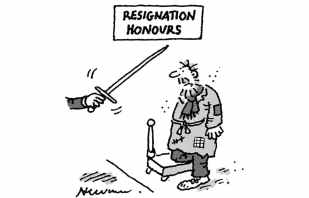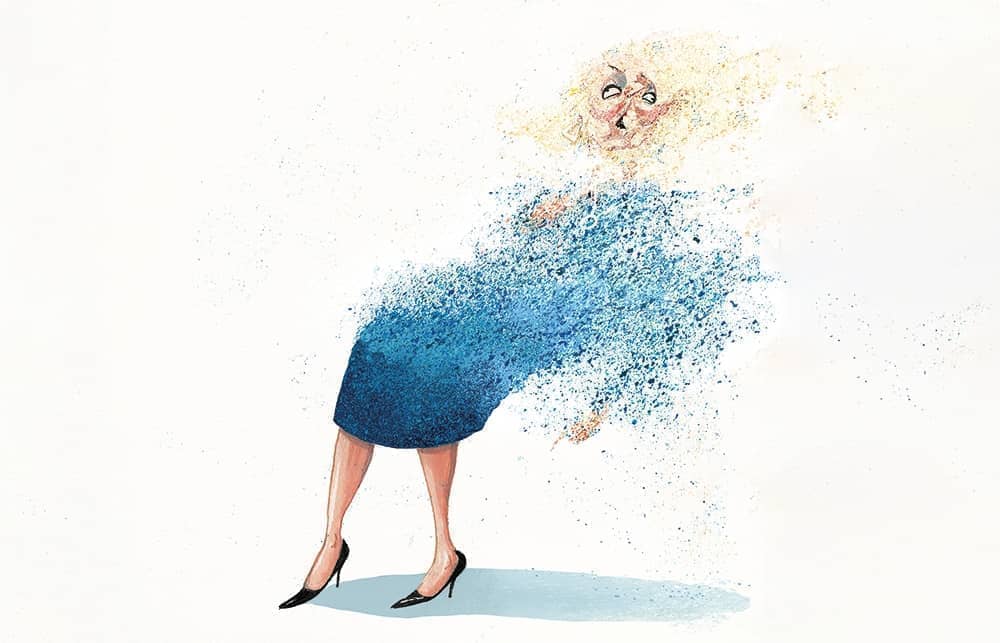Now that the final curtain has fallen on Liz Truss’s brief and tumultuous premiership, it is time for reflection. A chance to set the record straight and also to own up to mistakes – especially for those of us who tried to advise her. What went wrong? Yes, the tipping point was Kwasi Kwarteng’s mini-Budget. But three problems were by then already brewing.
First, the leadership campaign over the summer had become very focused on tax cuts. Even Rishi Sunak ended up saying he would cut the basic rate of income tax from 20 per cent to 16 per cent by the end of the next parliament, while Jeremy Hunt (now Chancellor) would not settle for cancelling the planned increase in corporation tax to 25 per cent, but instead wanted it cut to 15 per cent. The push for lower taxes helped set the fiscal agenda for the new government. But the format of the debates – essentially an exchange of soundbites – meant there was little serious discussion about which taxes to cut, why and when.
Second, Truss pitched herself as a ‘disruptor’, eager to challenge the old orthodoxies and institutional ‘groupthink’ that have held the economy back. But this was widely interpreted as ‘trashing’ the institutions themselves, including the Treasury, Bank of England and the Office for Budget Responsibility. This meant that knives were out for her in most of the media, as well as the markets.

Finally, time that should have been spent fine-tuning her tax reforms was eaten up by the energy crisis. In August, there was a very real threat that the crisis would turn into a catastrophe, with some estimates that the average household bill would jump to £6,000 a year, driving inflation to 20 per cent. Mitigating this was obviously necessary – but hugely expensive. I still regard the Energy Price Guarantee as something that went right. But at the time, it left little room for discussing anything else.
It was not until the first weekend of September (just before Truss became prime minister) that I had my first and, as it turned out, last meeting with Truss and Kwarteng, held at Chevening. The meeting was also attended by my fellow economists Gerard Lyons and Andrew Lilico, and the aim was to provide background briefing on the economic outlook and the mood of the markets. I thought it went well, but events then moved quickly on.
The early days of the Truss premiership were dominated by the announcement of the Energy Price Guarantee and the death of the Queen. Kwarteng took some flak for suggesting that this disrupted preparations for the ‘fiscal event’ on 23 September, but he was right. At the very least, a follow-up meeting the weekend after the Chevening gathering never took place. In the end, I had no further contact with either Truss or Kwarteng.
So this was the backdrop to the mini-Budget itself. The mistake here was not the Energy Price Guarantee, or the cancellation of the increases in National Insurance and Corporation Tax, or even suspending the usual OBR analysis. All of this had been announced in advance. What spooked investors was the unexpected extras, the cuts in income taxes (including the 45p rate). All of this was worsened by Kwarteng’s apparent doubling-down on tax cuts on the Sunday – despite the markets’ obvious and growing concerns about fiscal credibility.
As things worked out, the caustic market reaction gained a momentum of its own. That was just bad luck
This was particularly frustrating because there was no shortage of warnings about the importance of keeping the markets onside. Gerard Lyons and I wrote a paper for the Chevening meeting which stressed the need to move carefully. Why did our advice fail to cut through? I can only guess. Market sensitivities mean that outsiders cannot be in the room when Budget decisions are made. But perhaps Kwarteng judged that tax cuts could deliver the benefits he wanted more quickly than supply-side reforms. Or perhaps the advice, from myself and others, was simply not clear enough.
It is just about conceivable that this storm could have passed. Many independent commentators initially welcomed the broad thrust of the package, including the National Institute of Economic and Social Research. In an alternative reality, the Truss team could have quickly followed up the Budget with an extensive programme of supply-side reforms, culminating in the publication of a credible medium-term fiscal plan in November, accompanied by the necessary OBR blessing. And then, in the spring, a further package of tax cuts.
But as things worked out, the caustic market reaction gained a momentum of its own. In part, that was just bad luck. The dollar has been strong against most major currencies, making sterling’s slide look more dramatic than it was. Interest rates are rising worldwide. However, the rise in UK government bond, or ‘gilt’, yields was exacerbated by the increased use of liability-driven investment strategies by some pension funds. This triggered a vicious spiral of margin calls and forced gilt sales, driving up yields further and forcing the Bank of England to step in.
Even this could have been manageable. But the turmoil in the mortgage market was arguably the final straw. As it happens, mortgage rates would have jumped anyway as UK and global interest rates returned to more sustainable levels. However, by now the government had lost any control of the narrative and was being blamed for absolutely everything. The rest you know.
In the end, was there anything to ‘Truss-onomics’? Ironically, Truss summed it up best in her leaving speech outside No. 10. She is surely right that we need to be bolder in facing challenges and taking advantage of Brexit freedoms, and that the UK cannot afford to be a low-growth economy where the state takes an ever-increasing share of our national income.
Sadly, she was unable to deliver. Even though I had only a small part to play, I am sorry that I could not have done better too. But was this a revolution worth pursuing? My answer is an unequivocal ‘yes’.






Comments